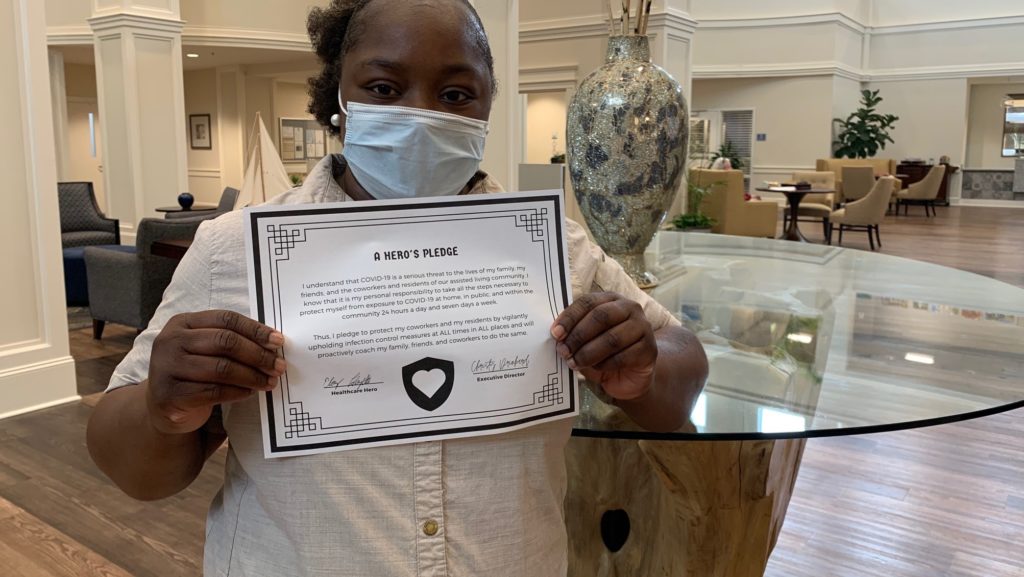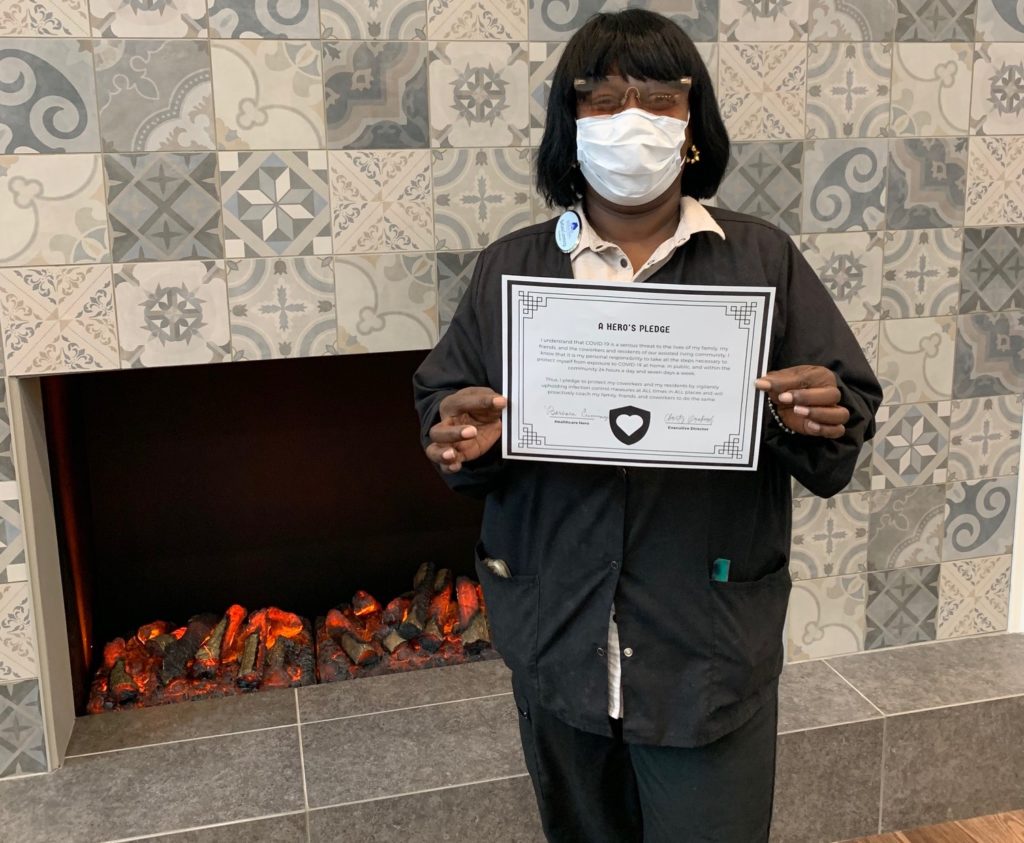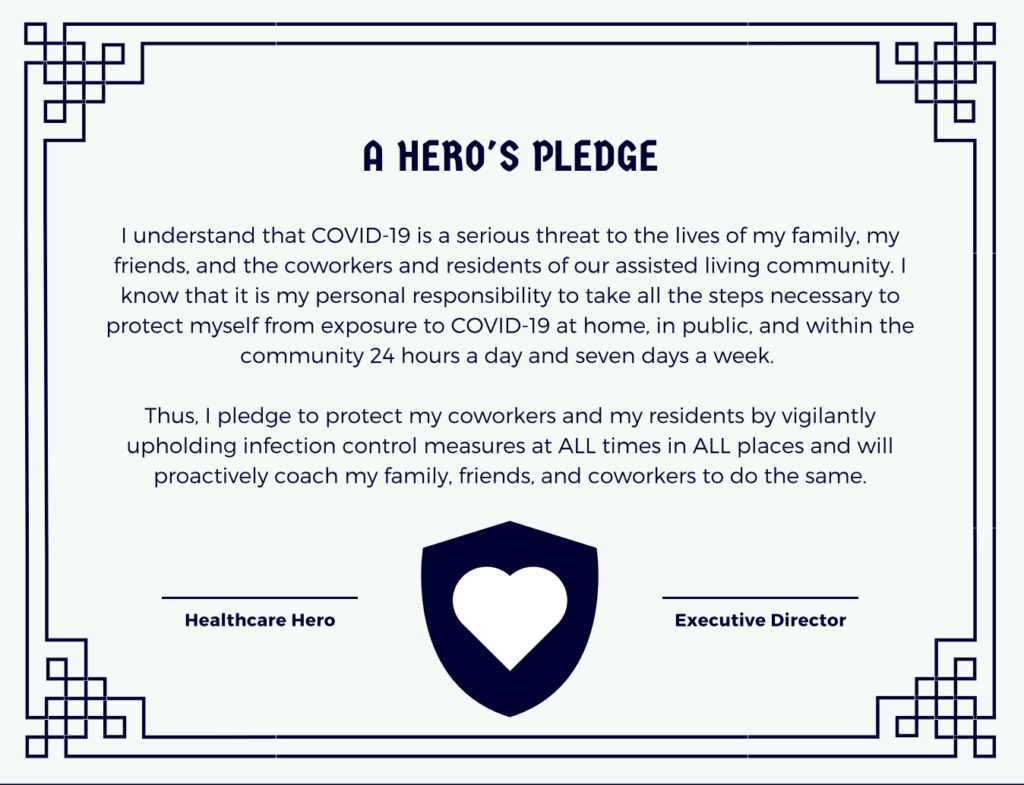As some U.S. states ease stay-at-home orders and allow businesses to reopen, senior living providers worry that doing so imperils all of their hard work to keep residents and staff safe.
Governors in Georgia, Alaska and Oklahoma have all announced plans to begin reopening different economic sectors on Friday. In Georgia, for instance, Gov. Brian Kemp officially gave the go-ahead for hair salons, bowling alleys and gyms to open their doors to customers again. Similar trends are playing out in Alaska and in Oklahoma, both of which also allowed some businesses to reopen Friday. And even in other states which aren’t fully reopening, there are discussions to allow some business to resume operations as early as Monday.
In response, providers with communities in those states are reviewing their infection control protocols with associates, and stressing the need to keep practicing those measures as they go about their personal lives. One company, Hickory, North Carolina-based Affinity Living Group (ALG), is even getting its frontline caregivers to sign a “hero’s pledge” signifying they understand the threat that Covid-19 presents and will uphold the company’s infection control protocols at all times.
“We see the impact that social distancing has had on the doubling time of the virus,” Dr. Kevin O’Neil, chief medical officer for ALG, told Senior Housing News. “But I’m very concerned that we’re going to see another spike now that we’re letting up on these infection control measures.”
Taking the pledge
O’Neil — who was an early voice of warning in February about the potentially devastating effects of the coronavirus — has implemented infection control measures at ALG such as isolating residents in their rooms, cancelling communal meals and group activities, mandating that residents and staff both wear masks and requiring door screenings that check for Covid-19 symptoms.
To date, the company has only had positive Covid-19 diagnoses in two of its roughly 160 communities. At one community in North Carolina, 19 residents and four staff tested positive for Covid-19 at the beginning of April. At another community in Florida, two residents tested positive for Covid-19, though one of those residents has since left the community. So far, nine ALG residents with Covid-19 have died, though eight of those residents was in hospice before they contracted the disease, and all had a DNR (do not resuscitate) in place, O’Neil explained.
So far, O’Neil feels as though ALG has done a good job mitigating the disease’s spread. And, given the size of the provider’s portfolio in the Southeast, doing so is no small feat, requiring coordination across multiple departments involving many different people. But easing strict stay-at-home restrictions now — such was what is occurring in Georgia, where ALG has 10 communities — may well undermine all of the provider’s hard work so far.
The thinking is that, as normal life resumes, new clusters of Covid-19 could surface as they did weeks ago. And given the high rate of asymptomatic infections, the big fear is that frontline caregivers could acquire the disease in public spaces and pass it to vulnerable older adults.
“If we just go back to the same way we’ve had of doing things, congregating on beaches, going to bars and restaurants in close quarters, we’re going to run into some trouble very quickly,” O’Neil said. “And I think we could backslide quite a bit.”
To safeguard residents, ALG has begun encouraging its workers to sign a “hero’s pledge” that they will uphold the company’s infection control measures even at home or in public. By signing the pledge, caregivers vow to practice rigorous handwashing and nail hygiene, practice social distancing, wear a mask even when not in the community and not participate in risky activities.
“Our concern is the moral obligation we have, and the oath we’ve taken, to do the very best we can to provide care for the folks that we serve,” O’Neil said. “When our associates go out into the broader community, I want them preaching this message to their family and friends and even people that they meet, because that’s the way that will change the culture.”
First to lock down, last to reopen
ALG is not the only senior living provider worried about the easing of stay-at-home restrictions. Another provider stressing these sort of precautions is Atlas Senior Living, a Birmingham, Alabama-based senior living provider that owns and/or operates 24 retirement communities in Alabama, Florida, Georgia, Kentucky, South Carolina and Tennessee.
Atlas was among the first senior living providers to begin testing for Covid-19 in its communities, an effort it’s undertaking through a partnership with Assurance Scientific Laboratories. Two of the company’s residents have tested positive for Covid-19 so far.
While Atlas — which has five communities in Georgia — isn’t asking its associates to sign a pledge, it is also encouraging them to maintain infection control protocols in their personal lives. And like O’Neil, Atlas Senior Living President and COO Wyman Hamilton believes now is not the right time to reopen the economy.
“I feel like they are jumping the gun,” he said, referring to Gov. Kemp’s decision to reopen parts of the Georgia economy Friday. “But I do understand the urge to start getting business going again.”
He stresses that the company will maintain its current infection control protocols, which have largely worked to keep the disease out of the provider’s communities thus far. And Hamilton also applauded the recent efforts of the Georgia National Guard, which has worked across the state to disinfect senior housing communities and test residents for Covid-19.
“They have done some very proactive things that other states haven’t done to help protect our seniors,” Hamilton said.
Larksfield Place, a continuing care retirement community (CCRC) in Wichita, Kansas, established expectations for workers as Covid-19 infections began to pick up in the United States. Employees agreed to these guidelines about staying at home when not at the community, to limit the potential for becoming infected.
Though Kansas Gov. Laura Kelly has favored a more gradual approach than leaders of other states, the state is currently planning to ease some its state-wide Covid-19 protocols on May 3. Larksfield Place has a plan to hold a ceremony in which staff members sign a banner, pledging to keep holding up the current expectations around staying at home and limiting social interactions even as the rest of the state begins to re-open.
Larksfield associates are so concerned for residents’ wellbeing that enforcing the policy has not been an issue, according to Chelsea Powell, the community’s vice president of HR.
“They see this as their way of protecting their Larksfield family,” Powell told SHN. “And they want to do the right thing.”
Larksfield Place isn’t taking any chances when the state government does begin to lift stay-at-home restrictions, according to the CCRC’s health care center administrator, Karen Wilkerson.
“We’re just not going to open the floodgates too quickly,” Wilkerson told SHN. “We were among the first to lock down, and we plan to be last to reopen.”
Companies featured in this article:
Affinity Living Group, Atlas Senior Living, Larksfield Place





